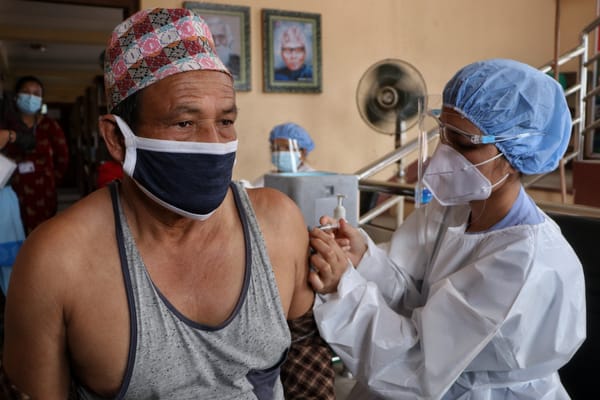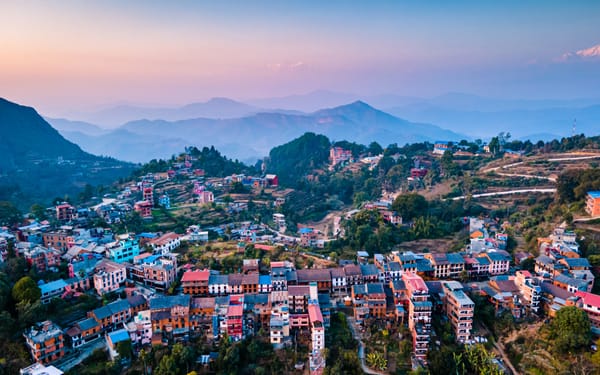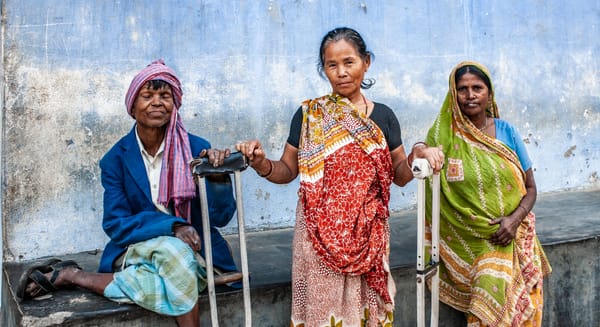Patients Suffer as Hospitals Shut Down Over Court Verdict

On 7 July 2025, the Nepal Medical Association (NMA) shut down all outpatient services except emergency services, leaving thousands of patients stranded. The NMA spearheaded this decision in response to the Consumer Court verdict that imposes penalties on negligent doctors and hospitals.
Protests began early on 1 July, as doctors were seen wearing black armbands on their white coats. Within days, it escalated into a complete shutdown of all services. In Kathmandu, major hospitals such as Bir Hospital and TU Teaching Hospital turned patients away for two consecutive days. Services only resumed after an agreement was forged on 9 July.
The shutdown was particularly hard-hitting on rural and financially disadvantaged patients. In Nepal, each ward has a government-run health post and community health unit that only provides primary healthcare. Patients who require advanced health services are often referred to secondary or tertiary healthcare facilities, located in the city or the capital. Many patients and families who made the trip were left stranded, unsure of what to do, after being turned away from the hospitals.
Earlier, the Consumer Court found Grande Hospital, Dhapasi, Om Hospital, Chabahil, and Himal Hospital, Gyaneswor, guilty in a highly publicized hearing. After being found negligent, the hospitals and their doctors were ordered to pay millions in compensation.
Om Hospital – Rs. 5.68 million to Basanta Gautam, who lost his father (80% hospital, 20% doctor).
Himal Hospital – Rs. 14.5 million to Ganga Gautam, who lost her 28-month-old daughter (70% hospital, 30% doctor).
Grande International Hospital – Rs. 5.719 million to Barsha Bhandari, who suffered after a cosmetic procedure (60% hospital, 40% doctor).
The Consumer Court has only come into effect since March 15th of this year, a platform for the aggrieved consumers and patients to seek legal recourse. While consumers have hailed this decision as a milestone for their rights, the NMA strongly opposes it.
The NMA insists that medical judgment is a science that cannot and should not be judged as if it were any other business. Spokesperson Dr. Anil Bikram Karki has warned of a lack of trust between doctors and patients, rendering them unable to provide services. He added that there are middlemen who seek to exploit the system and claim compensation from hospitals on behalf of patients.
The NMA called for immediate amendments to the National Penal Code Act 2017 and the Consumer Protection Act 2018, asking for the removal of medical services from the Consumer Court's jurisdiction. It insists that the Nepal Medical Council should be the sole body to handle allegations of professional misconduct.
This is not the first time the NMA has resorted to service shutdowns. Earlier this year, in April, it instructed doctors to cease services to pressurize private medical colleges into providing stipends that match those of government-owned colleges. Health workers were encouraged to participate in sit-ins and gatherings at various designated locations to intensify their objective.
The July standoff ended after an agreement was reached between the NMA and the government, wherein a three-member working group was formed to study the demands of the protesting doctors. The task force would reconvene in a week to discuss again and advance the process of amendments.
Meanwhile, patients with limited financial resources were forced to wait, sleep on hospital floors, or even return home without availing any of the services.
It should be noted that according to the National Penal Code, withholding the public's right to treatment is unconstitutional and can result in up to three years of prison or a fine of Rs. 30,000/-. Dissatisfied doctors or hospitals also retain the right to appeal Consumer Court decisions in the High Court.



